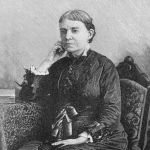1.
Corpse in the paddy, or dead on a high hill
In the fine and ruinous summer of a war
You never wanted. All your false flags were
Of bravery and ignorance, like grade school maps:
Colors of countries you would never see—
Until that weekend in eternity
When, laughing, well armed, perfectly ready to kill
You into your future. Oh, dead on a hill,
Dead in a paddy, leeched and tumbled to
A tomb of footnotes. We mourn a changeling: you:
Handselled to poverty and drummed to war
By distinguished masters whom you never knew.
2.
The bee that spins his metal from the sun,
The shy mole drifting like a miner ghost
Through midnight earth—all happy creatures run
As strict as trains on rails the circuits of
Blind instinct. Happy in your summer follies,
The state to mold you, church to bless, and always
The elders to confirm you in your ignorance.
No scholar put your thinking cap on nor
Warned that in dead seas fishes died in schools
Before inventing legs to walk the land.
The rulers stuck a tennis racket in your hand,
An Ark against the flood. In time of change
courage is not enough: the blind mole dies,
And you on your hill, who did not know the rules.
3.
Wet in the windy counties of the dawn
The lone crow skirls his draggled passage home:
And God (whose sparrows fall aslant his gaze,
Like grace or confetti) blinks and he is gone,
And you are gone. Your scarecrow valor grows
And rusts like early lilac while the rose
Blooms in Dakota and the stock exchange
Flowers. Roses, rents, all things conspire
And the public mourners come: the politic tear
Is cast in the Forum. But, in another year,
We will mourn you, whose fossil courage fills
The limestone histories: brave: ignorant: amazed:
Dead in the rice paddies, dead on the nameless hills.
















Comment form: